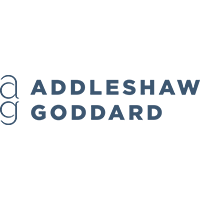

Legal director | Eiffage Construction



Laurence Ballone-Burini
Legal director | Eiffage Construction
Team size:11
What are the most significant cases or transactions that your legal team has recently been involved in?
Recently, business ethics and prevention and preservation of environmental matters are gaining momentum in the profession and the scope of lawyers. We have also noted that alternative methods of amicable dispute resolution are developing and leading jurists, lawyers and operational staff to change their approach to difficulties experienced on our construction sites, particularly in unforeseen circumstances. It is more interesting for our companies and less time-consuming than the time required for justice, sometimes very far removed from “on the ground” concerns.
How do you see the general counsel role evolving in France over the next five-ten years?
After a certain period of activity only within groups, my conviction is that the legal function must be more systematically associated with company general management decisions, for example, by making it a recurring member of Excoms. It is, even today, surprising to note that the profession and skills of lawyers are ultimately not so well known, sometimes suffering from a stereotypical vision: contracts and litigations. Our primary role consists, above all, of providing constant advice inside our companies with the sole objective of defending them, their managers and their employees, and preventing risks. And this is why it is strategic because we intervene from upstream to downstream. Without sharing information and insight into other key business functions, business loses efficiency.
What are some of the main trends in the industry sector you work in in France?
Our beloved construction sector faces many challenges, and I would focus on ecological transition to answer this question. Eiffage Group has been very committed to this vital objective for many years. It has implemented a low-carbon strategy in all its businesses since 2016, focused on reducing its internal footprint and developing low-carbon offers. Eiffage works with its entire value chain to decarbonise the act of building. Every year, we see in practice our concrete involvement, apart of course from the public order texts (which abound in parallel) that the construction industry must apply reuse of materials, even more precise sorting of our waste, low carbon technology, wooden construction, energy savings, digitalisation of the operation of buildings, industrialisation of construction methods, prefabrication, reduction of our consumption, smart building… For sure, the construction sector still has many tasks to accomplish in these respects and more in the future.
What are some of the main legislative or regulatory changes that have impacted you?
In recent years, it is the subjects of compliance and business ethics which have come to enrich the skills and practice of lawyers (Sapin 2 law, the law on the duty of vigilance, and many more); this was less the case, for example, 15 years ago. Environmental law is also a significant subject, and this additional competence is recent. In addition, it is essential to look more than ever towards Europe, particularly with a certain number of significant directives to come (CSRD Directive further strengthening extra-financial reporting regarding sustainability). Furthermore, it is inevitable that in the coming months and years, everything that revolves around AI, digital, and IT will take off and complement the risk areas of companies and, therefore, the arsenal of skills of lawyers. The Digital Services Act (DSA) and the Digital Market Act (DMA), the aim of which is to create a safer digital space where the fundamental rights of users are protected and to create a level playing field for businesses.
General counsel | Eiffage Construction
Legal Director | Eiffage Construction
Legal director | Eiffage Construction